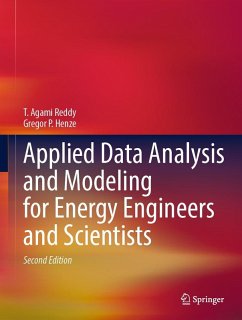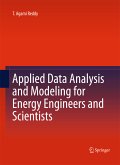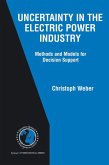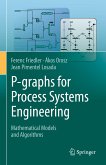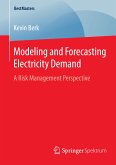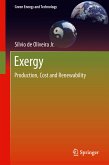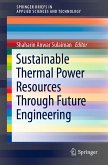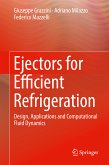Applied Data Analysis and Modeling for Energy Engineers and Scientists is designed for senior-level undergraduate and graduate instruction in energy engineering and mathematical modeling, for continuing education professional courses, and as a self-study reference book for working professionals. In order for readers to have exposure and proficiency with performing hands-on analysis, the open-source Python and R programming languages have been adopted in the form of Jupyter notebooks and R markdown files, and numerous data sets and sample computer code reflective of real-world problems are available online.
- Applies statistical and modeling concepts and methods learned in disparate courses to energy processes and systems;
- Provides a broad and integrative structure meant to enhance knowledge, skills, and confidence to work in applied data analysis and modeling problems;
- Includes practical examples, end-of-chapter problems, case studies, and RStudio code.
Dieser Download kann aus rechtlichen Gründen nur mit Rechnungsadresse in A, B, BG, CY, CZ, D, DK, EW, E, FIN, F, GR, HR, H, IRL, I, LT, L, LR, M, NL, PL, P, R, S, SLO, SK ausgeliefert werden.
Hinweis: Dieser Artikel kann nur an eine deutsche Lieferadresse ausgeliefert werden.

